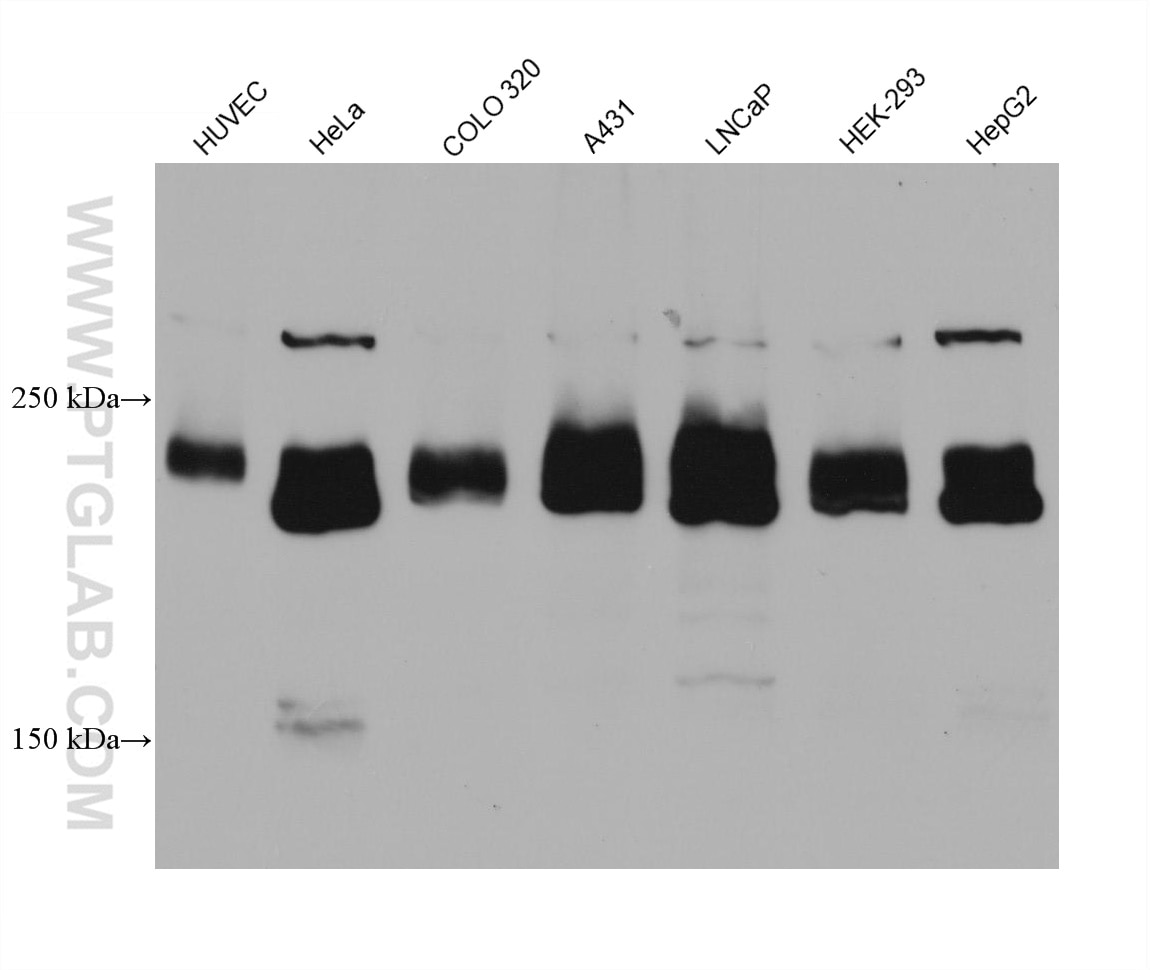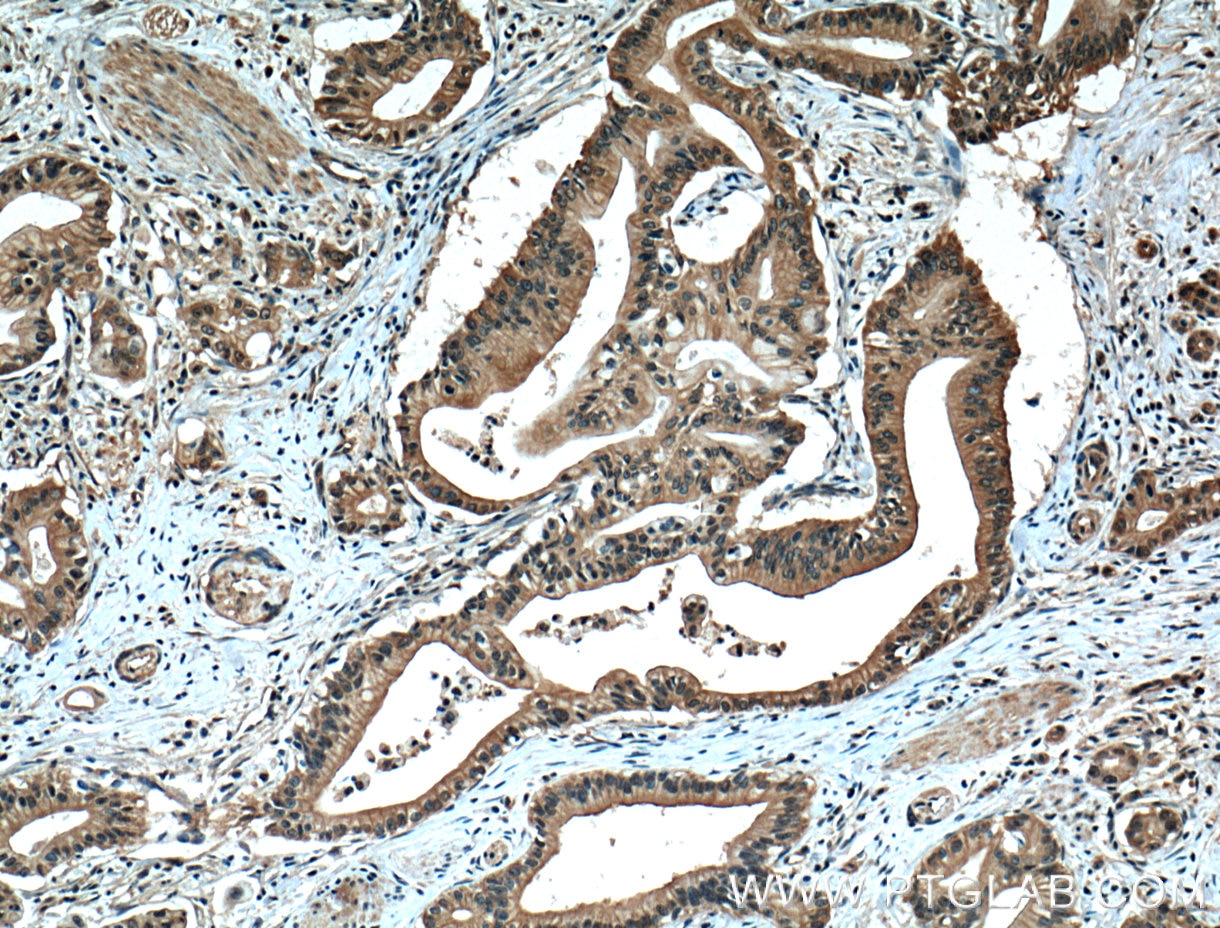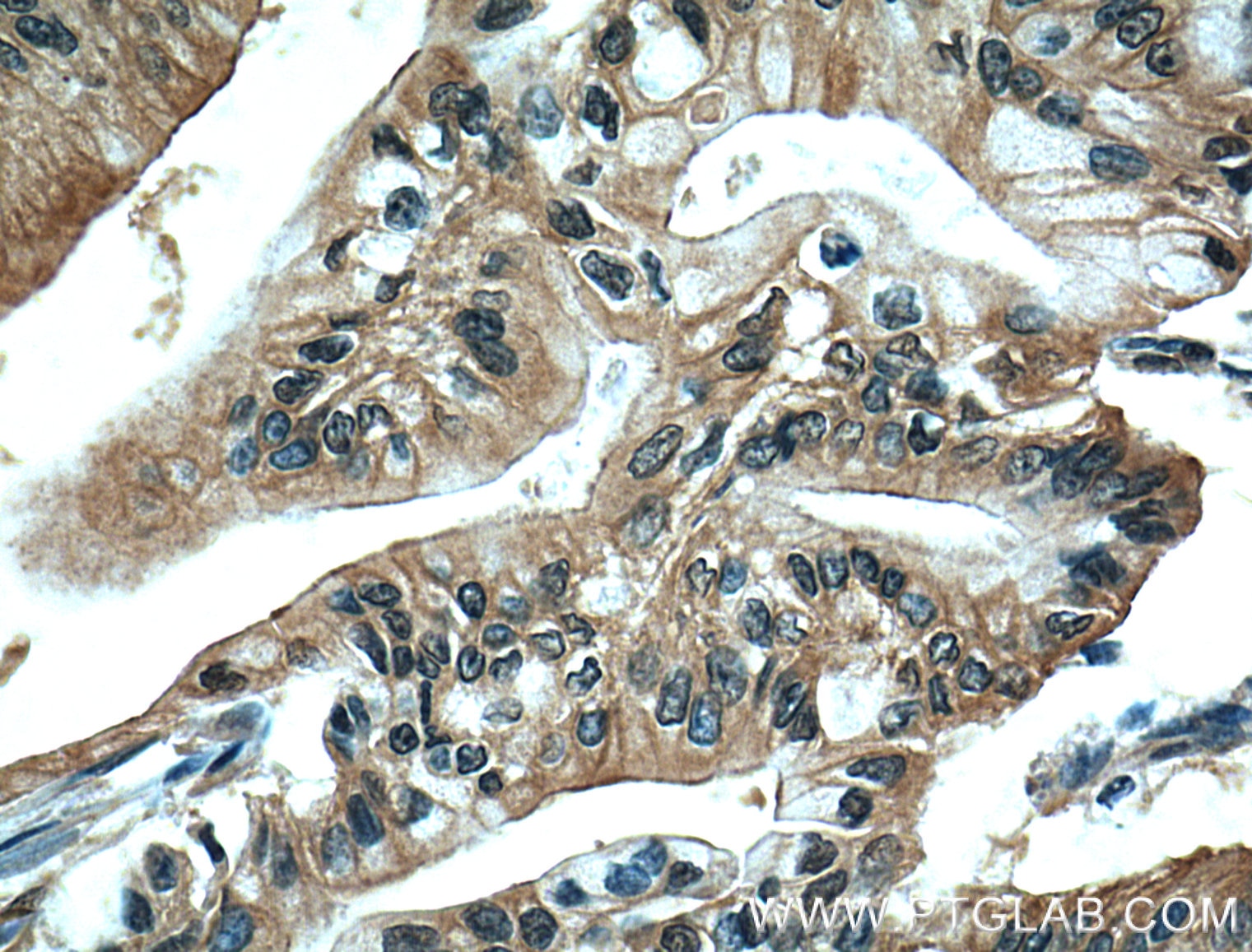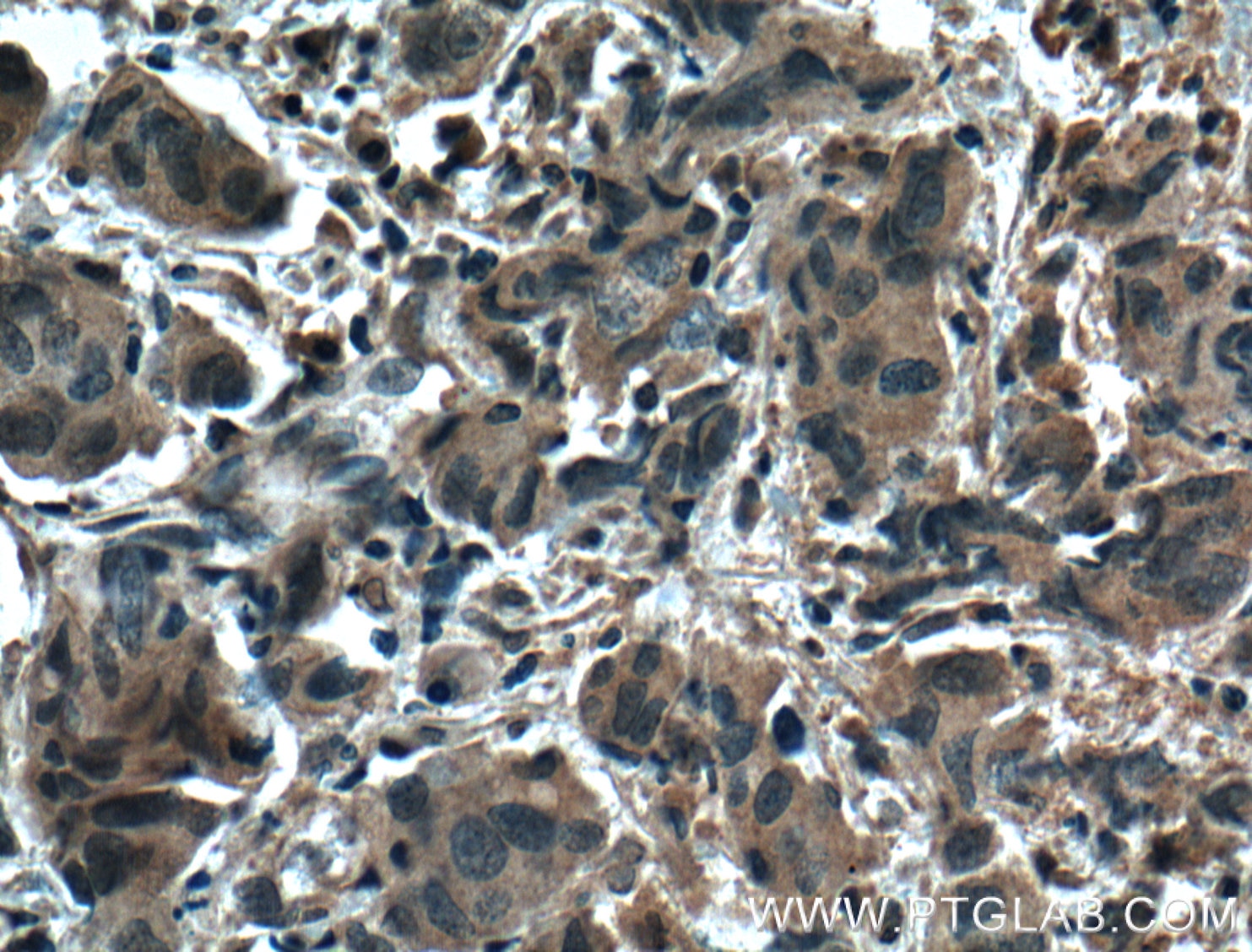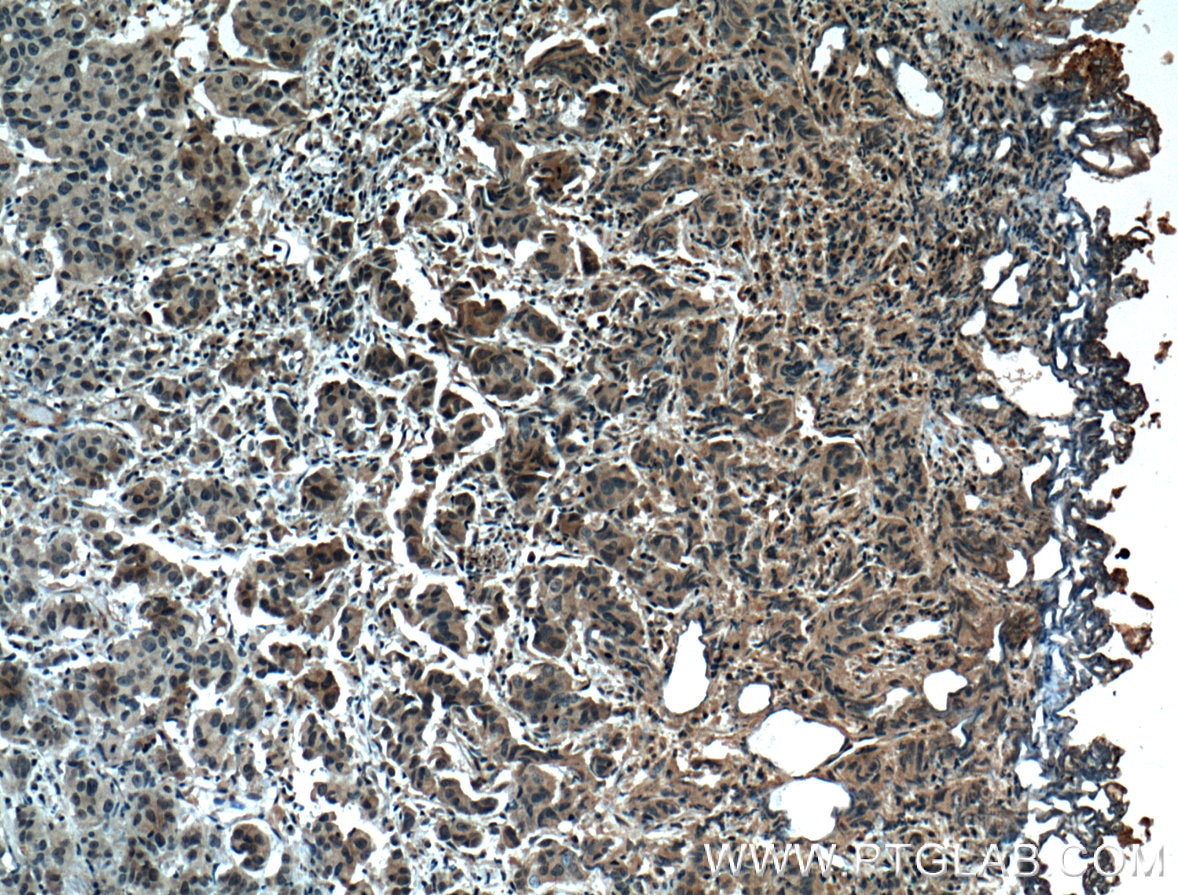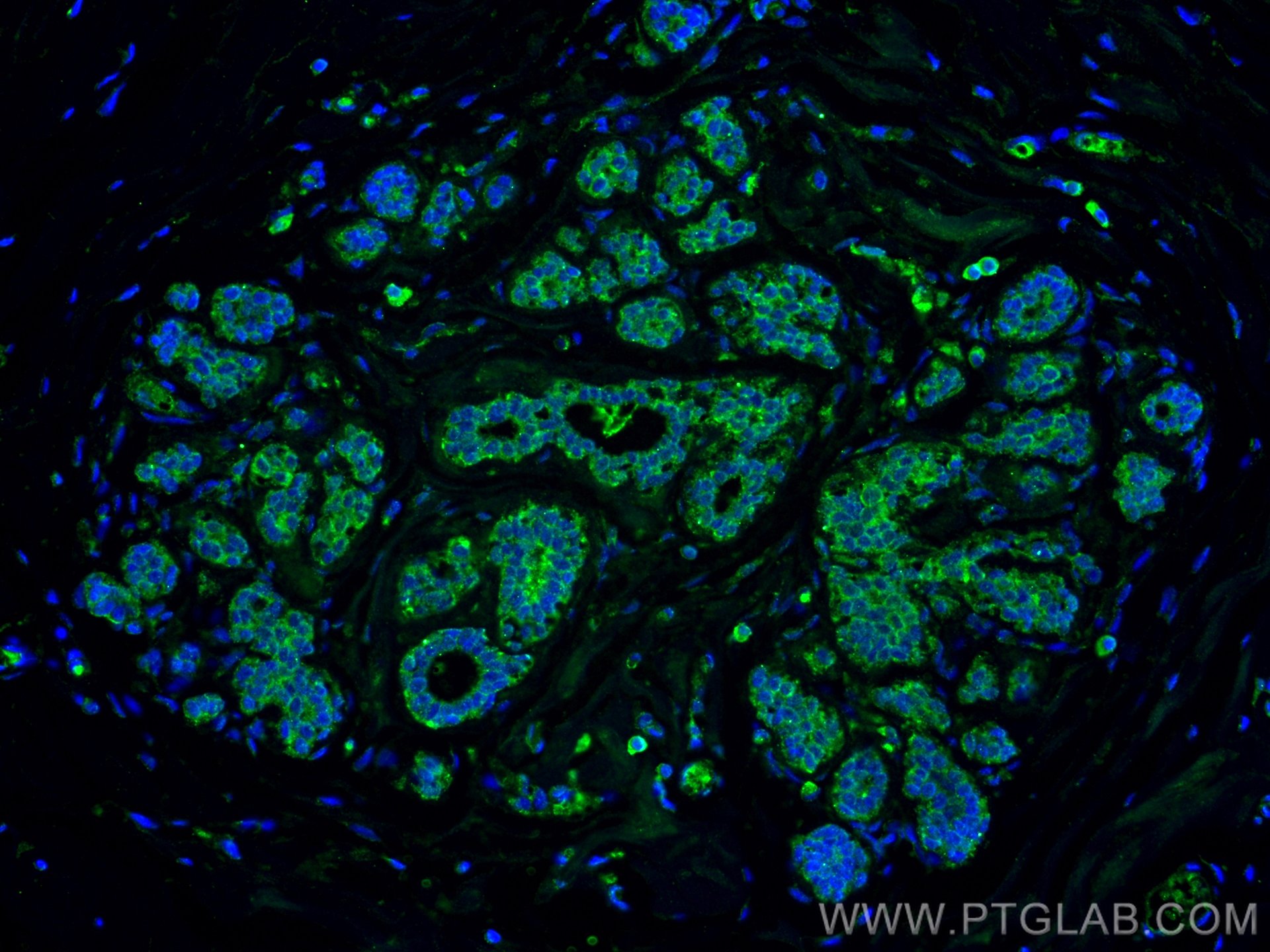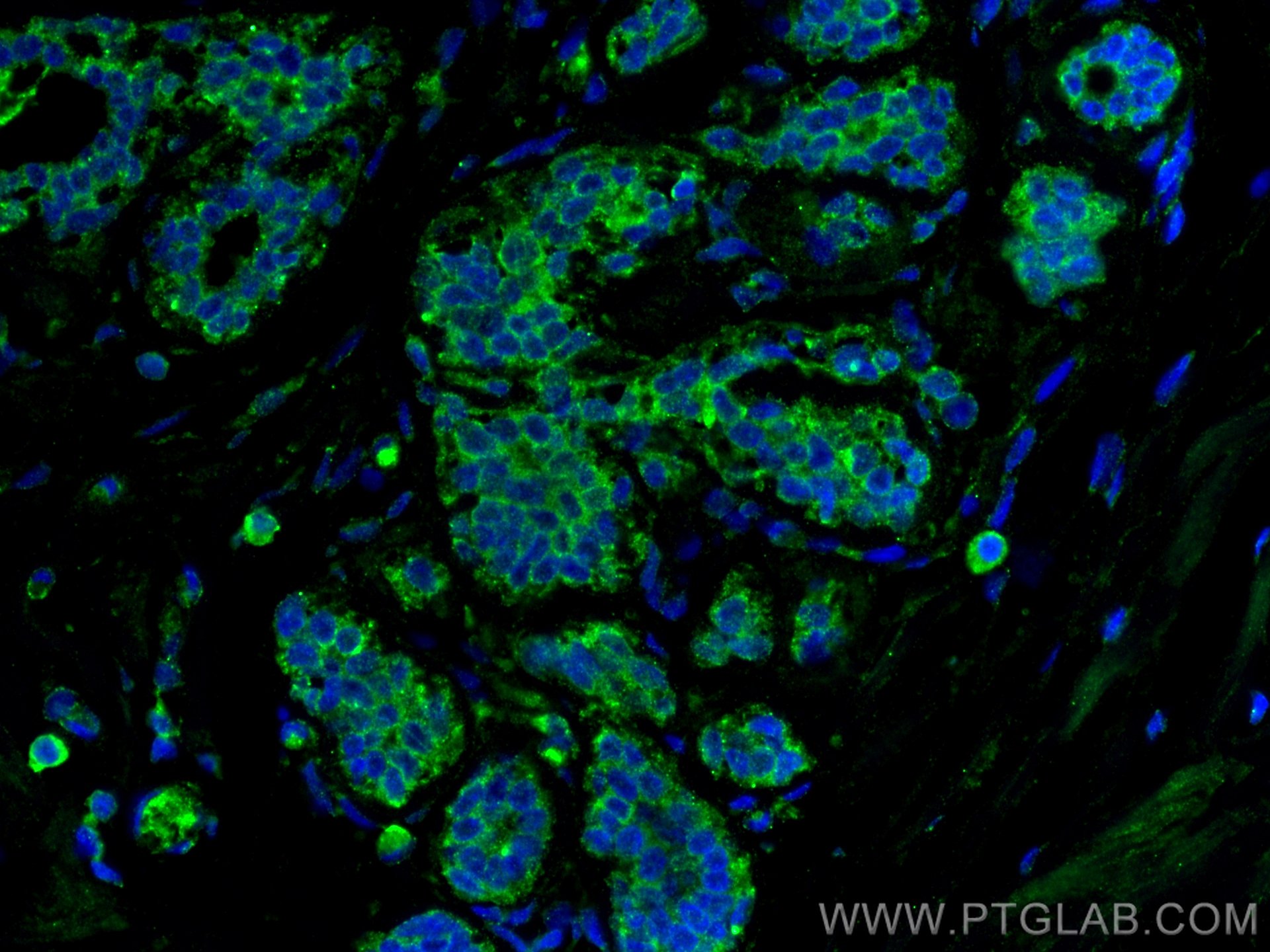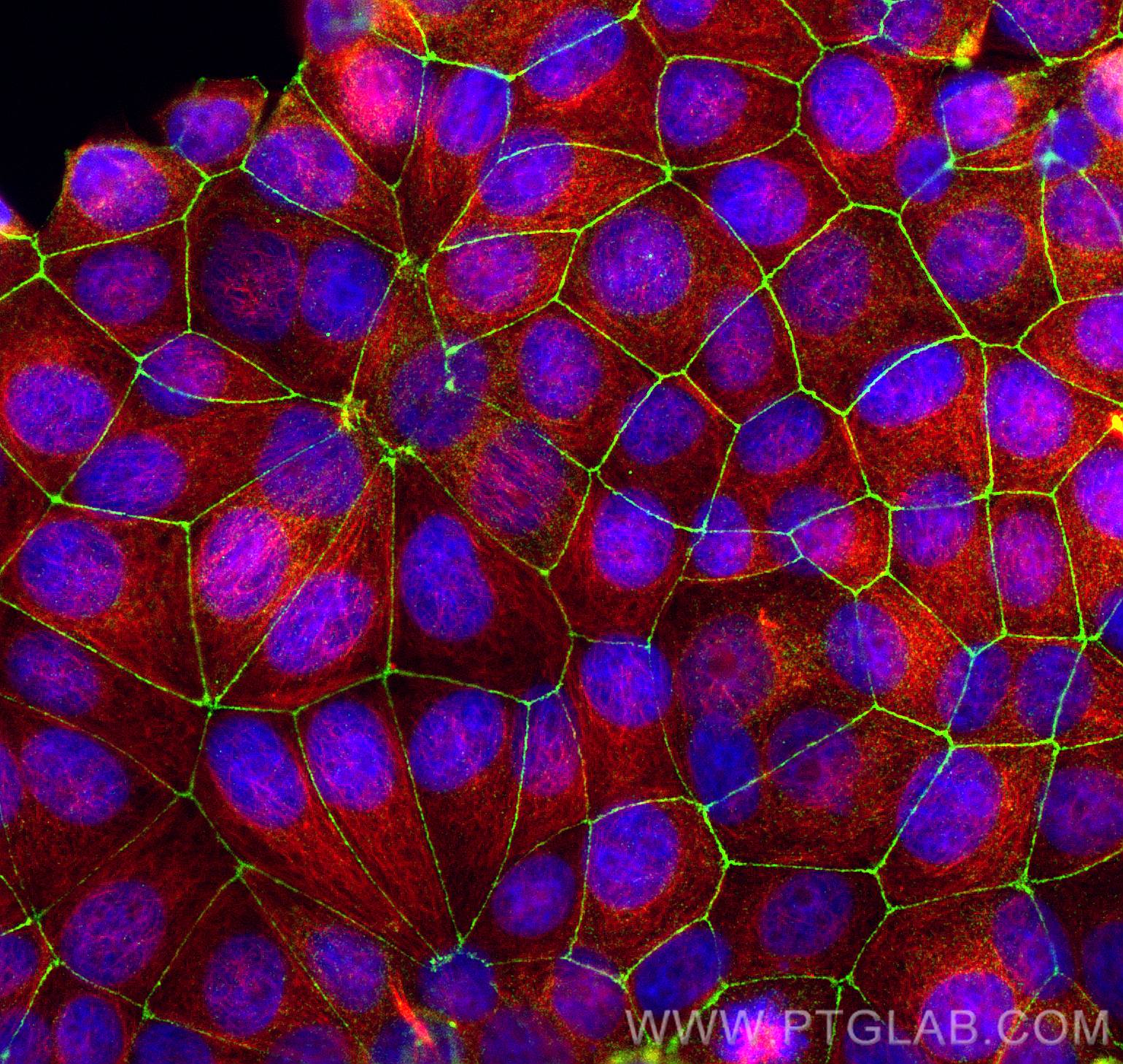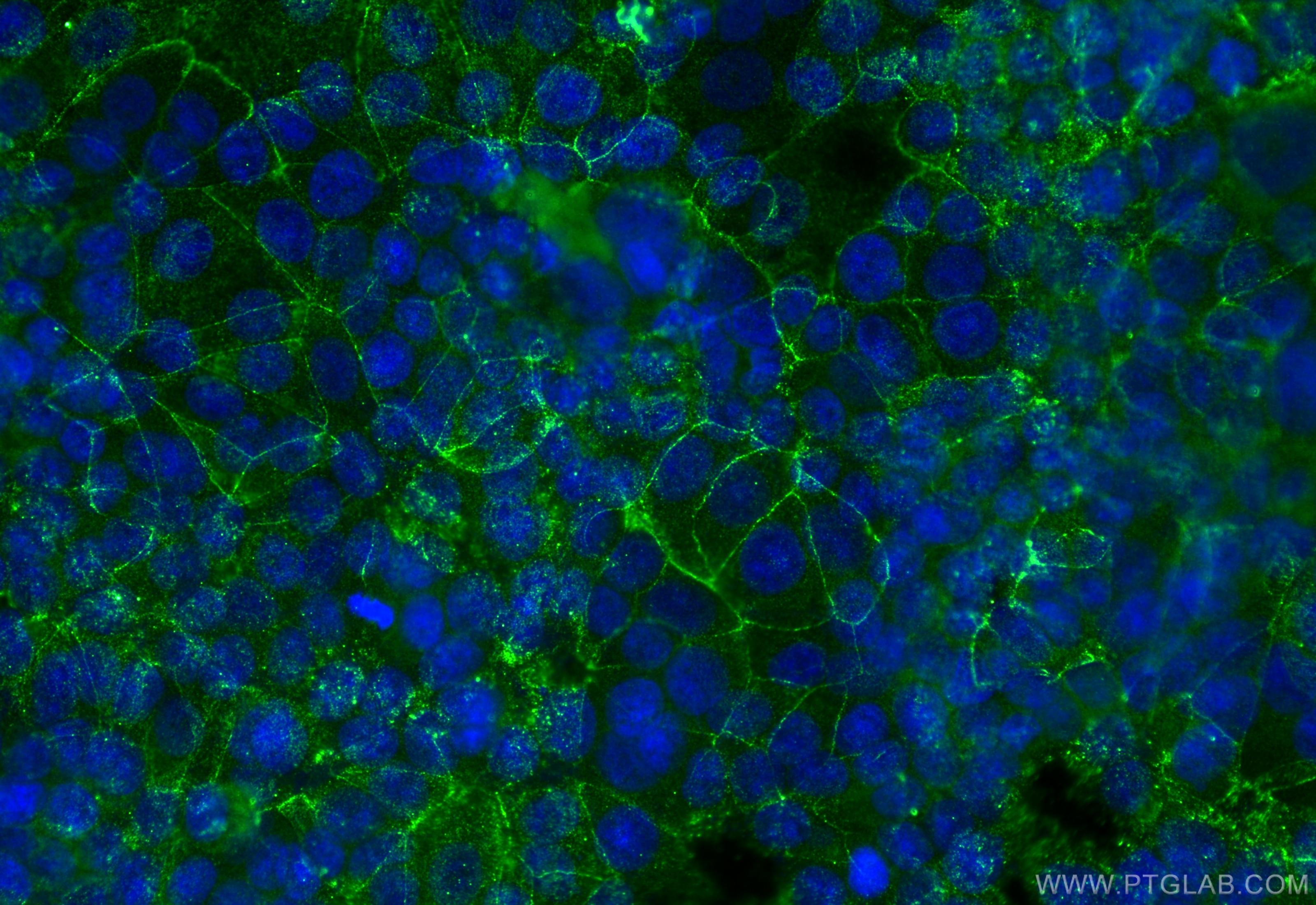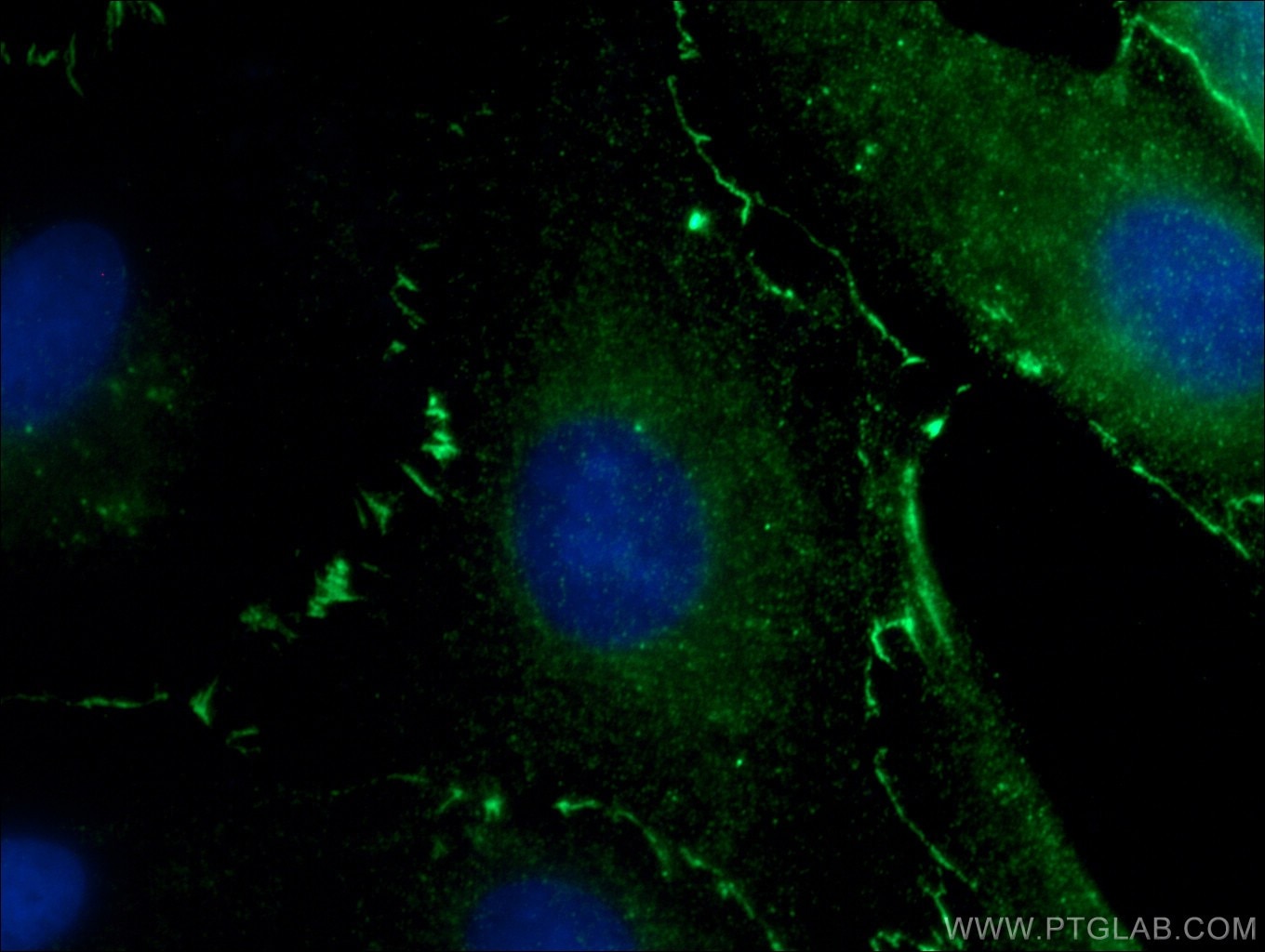Tested Applications
| Positive WB detected in | HUVEC cells, HeLa cells, COLO 320 cells, A431 cells, LNCaP cells, HEK-293 cells, HepG2 cells |
| Positive IHC detected in | human pancreas cancer tissue, human prostate cancer tissue Note: suggested antigen retrieval with TE buffer pH 9.0; (*) Alternatively, antigen retrieval may be performed with citrate buffer pH 6.0 |
| Positive IF-P detected in | human breast cancer tissue |
| Positive IF/ICC detected in | MCF-7 cells, MDCK cells |
Freshly prepared samples are recommended.
Recommended dilution
| Application | Dilution |
|---|---|
| Western Blot (WB) | WB : 1:1000-1:6000 |
| Immunohistochemistry (IHC) | IHC : 1:200-1:800 |
| Immunofluorescence (IF)-P | IF-P : 1:200-1:800 |
| Immunofluorescence (IF)/ICC | IF/ICC : 1:400-1:1600 |
| It is recommended that this reagent should be titrated in each testing system to obtain optimal results. | |
| Sample-dependent, Check data in validation data gallery. | |
Published Applications
| WB | See 58 publications below |
| IHC | See 13 publications below |
| IF | See 47 publications below |
Product Information
66452-1-Ig targets ZO-1 in WB, IHC, IF/ICC, IF-P, ELISA applications and shows reactivity with human, canine samples.
| Tested Reactivity | human, canine |
| Cited Reactivity | human, pig, canine |
| Host / Isotype | Mouse / IgG1 |
| Class | Monoclonal |
| Type | Antibody |
| Immunogen |
CatNo: Ag16454 Product name: Recombinant human ZO1 protein Source: e coli.-derived, PGEX-4T Tag: GST Domain: 1446-1748 aa of BC111712 Sequence: SLHIHSKGAHGEGNSVSLDFQNSLVSKPDPPPSQNKPATFRPPNREDTAQAAFYPQKSFPDKAPVNGTEQTQKTVTPAYNRFTPKPYTSSARPFERKFESPKFNHNLLPSETAHKPDLSSKTPTSPKTLVKSHSLAQPPEFDSGVETFSIHAEKPKYQINNISTVPKAIPVSPSAVEEDEDEDGHTVVATARGIFNSNGGVLSSIETGVSIIIPQGAIPEGVEQEIYFKVCRDNSILPPLDKEKGETLLSPLVMCGPHGLKFLKPVELRLPHCDPKTWQNKCLPGDPNYLVGANCVSVLIDHF Predict reactive species |
| Full Name | tight junction protein 1 (zona occludens 1) |
| Calculated Molecular Weight | 1748 aa, 195 kDa |
| Observed Molecular Weight | 230 kDa |
| GenBank Accession Number | BC111712 |
| Gene Symbol | ZO-1 |
| Gene ID (NCBI) | 7082 |
| RRID | AB_2881821 |
| Conjugate | Unconjugated |
| Form | Liquid |
| Purification Method | Protein G purification |
| UNIPROT ID | Q07157 |
| Storage Buffer | PBS with 0.02% sodium azide and 50% glycerol, pH 7.3. |
| Storage Conditions | Store at -20°C. Stable for one year after shipment. Aliquoting is unnecessary for -20oC storage. 20ul sizes contain 0.1% BSA. |
Background Information
Tight junction (or zonula occludens) form the continuous intercellular barrier between epithelial and endothelial cells, which is required to separate tissue spaces and regulate selective movement of solutes across the epithelium and endothelium (PMID: 20066090). ZO-1 (also known as TJP1) is a peripheral membrane phosphoprotein located on the cytoplasmic face and is expressed in tight junctions of both epithelial and endothelial cells (PMID: 3528172). It binds the transmembrane proteins occludin and the claudins linking them to cytoskeletal actin (PMID: 17418867). ZO-1 belongs to a family of multidomain proteins known as the membrane-associated guanylate kinase homologs (MAGUKs). It is a pivotal tight junction protein and may be involved in signalling mechanisms regulating cell proliferation and differentiation (PMID: 22782886).
Protocols
| Product Specific Protocols | |
|---|---|
| IF protocol for ZO-1 antibody 66452-1-Ig | Download protocol |
| IHC protocol for ZO-1 antibody 66452-1-Ig | Download protocol |
| WB protocol for ZO-1 antibody 66452-1-Ig | Download protocol |
| Standard Protocols | |
|---|---|
| Click here to view our Standard Protocols |
Publications
| Species | Application | Title |
|---|---|---|
ACS Nano Mind the Particle Rigidity: Blooms the Bioavailability via Rapidly Crossing the Mucus Layer and Alters the Intracellular Fate of Curcumin | ||
Sci Adv Astrocytic NDRG2-PPM1A interaction exacerbates blood-brain barrier disruption after subarachnoid hemorrhage | ||
Nat Commun An electrochemical biosensor for the detection of epithelial-mesenchymal transition. | ||
Cell Death Differ SARS-CoV-2 spike protein dictates syncytium-mediated lymphocyte elimination. | ||
ACS Appl Mater Interfaces Betaine-Based and Polyguanidine-Inserted Zwitterionic Micelle as a Promising Platform to Conquer the Intestinal Mucosal Barrier | ||
Int J Biol Macromol zwitterionic Pluronic analog-coated PLGA nanoparticles for oral insulin delivery |

